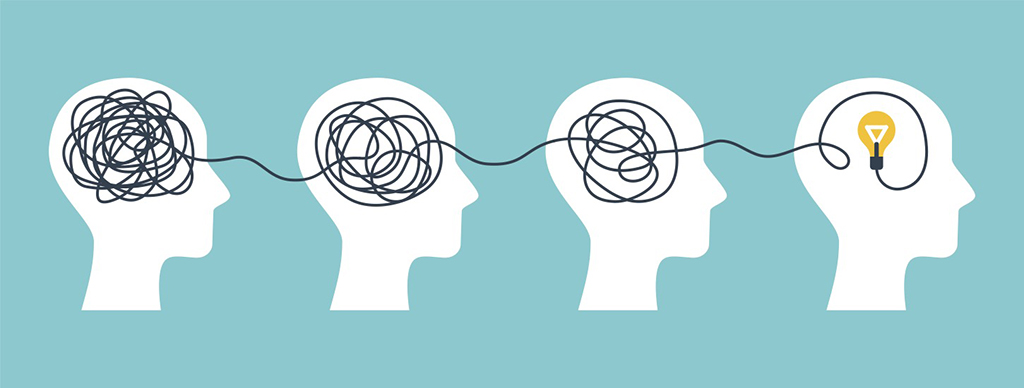
Studies show that practicing mindfulness daily restructures your brain using the power of neuroplasticity, and in a good way. The physical changes seen in the brain in these studies show the positive effects–increased grey matter in the hippocampus, which is vital to learning and memory, and reduced grey matter in the amygdala, which is the home of anxiety and stress.



Take a deep breath…. This video is all about relaxing, calming, and taking a minute for yourself! We’re going to spend some time just taking some deep breaths and practicing mindfulness in an effort to reduce stress and become more aware of your surroundings. You have a busy life and you spend so much time performing and working for others. It’s crucial to take time to tend to yourself as well. We want to honor that with this video. Dr. Kate will guide you through a super-calming meditation for centering yourself and taking a few minutes to live solely in the present.
We all have moments where we reflect back on a conversation and wish we had said something differently. In this guided meditation Dr. Kate invites you to join her on a guided meditation that examines mindfulness as we speak to others. As humans are deeply social by nature, this is a skill we can all benefit from. Throughout the meditation, Dr. Kate will describe concepts and questions to ask yourself as you converse, which will help keep your interactions healthy, and hopefully even enjoyable.
In this guided meditation, Dr. Kate Truitt guides us to move toward a healthy relationship with the fearful part of our brain. She asks us to welcome in healing touch during this meditation, which calms our brain during this experience.
She leads us to locate the energy in us that is concerned or fearful of the post-pandemic world. Dr. Kate asks us to identify if it has a size, color, or temperature so it’s easily recognizable to us in the future. Once we have found and identified this energy, Dr. Kate instructs us to gently place the energy further back so that it ceases to overwhelm us.
This space allows for compassion and curiosity towards this energy, and we can learn how to have a positive relationship with the fearful part. It is a valid part of our being, and we can appreciate that the fearful part of us loves us and only has our best interests at heart.

Rumination in our brains over distressing events from the past causes us to bring worry into the present
Does your mind often wander? Many people may see mind wandering in a positive light—as just “checking out” for a few moments to savor a moment from the past of love, enjoyment, or peace. For others, this state happens often, and it can be harmful, causing them to jump helplessly back and forth between what happened in the past to possibilities of what might happen in the future. Unconscious thoughts, behaviors and feelings spur on feelings of fear, regret, dread and anxiety and flood them into the present moment.
This rumination in our brains over distressing events from the past causes us to bring worry into the present, undermining our emotional, physical, and mental well-being and contributing to stress and stress-related disorders.
Yes, this process affects us both physically and emotionally.
Understanding this link between the mind and body is vital to building resilience because the reason we experience similar responses to both physical and emotional pain is that the same areas of the brain are involved in processing those experiences. In this connection we have a powerful opportunity to employ the tools we use for the mind to ensure these experiences of physical pain/illness—like those of psychological trauma—do not become long-lasting.

Mindfulness-based treatment will not negate impacts from childhood trauma or a more recent stressful event, but it helps you begin to stop reliving experiences that negatively impact your peace and happiness.
Through mindfulness-based treatment, we explore the unity in the mind and body, and learn how unconscious thoughts, behaviors, and feelings impact their lives. Mindfulness turns the brain back to fully and openly paying attention to the present moment, allowing us to separate the unconscious thoughts from the body sense, creating a space for calm and healing. Mindfulness-based stress reduction combines the mind and meditation processes—simply observing what is happening without reaction or judgment.
Mindfulness-based treatment will not negate impacts from childhood trauma or a more recent stressful event, but it helps you begin to stop reliving experiences that negatively impact your peace and happiness. This therapy helps to reduce emotional reaction and arousal from stressful situations, and can improve emotional regulation, increase self-awareness, decrease stress and tension, and improve conditions such as obsessive-compulsive disorders and eating disorders.
As mentioned above, the cycle of rumination can interfere with a person’s physical health as well. Mindfulness-based techniques can also help to improve health outcomes, by lowering blood pressure, improving sleep habits, reducing chronic pain, alleviating gastrointestinal issues and more.
Don’t let stress or trauma control your life. Mindfulness training can help you live your most fulfilled life and quiet the busy-ness of your mind. Contact Dr. Truitt and her team of therapists to discuss what mindfulness-based options are available to sponsor Your Best Life and Live Your Excellence.
Visit our Living Your Excellence Blog
Are you ready for empowered change? Choose from our articles below to explore how the latest advances in neuroscience create opportunities for harnessing the power of neuroplasticity, and create a space for inspiration and healing.
———————————
Federal Department of Consumer Affairs and Board Of Behavioral Science Notifications For Consumers